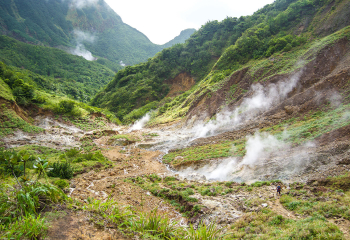CDB approves funding to support climate resilience in Turks and Caicos Islands
The Board of Directors of the Caribbean Development Bank (CDB) has approved funding to the Government of the Turks and Caicos Islands (TCI) to enhance its capacity to protect and manage the islands’ coastlines using climate-resilient approaches.
The funding will support a feasibility study and designs for coastal protection works in Grand Turk, North Providenciales and Salt Cay, and the development of a Shoreline Management Plan.
O’Reilly Lewis, Division Chief, Economic Infrastructure Division, CDB notes, “Tourism is the main pillar of TCI’s economy, with its coastal and marine resources as the basis of the sector. The loss of critical beach assets due to coastal erosion, as well as the other anticipated changes resulting from climate change, would potentially have significant negative implications for settlements, tourism sites and livelihoods resulting from the reduction in coastal and marine economic activity.”
“The feasibility study and designs derived from the technical assistance project will provide the Government of TCI with viable designs for climate-resilient infrastructure solutions to safeguard social and economic development, economic growth and livelihood security,” he said.
The Shoreline Management Plan will strengthen TCI’s capacity to sustainably monitor and manage the country’s beaches and related coastal assets. It will also assist the Government with the development of a more comprehensive Integrated Coastal Zone Management Plan.
The project will be supported by a USD440,000 loan, a USD50,000 grant allocated from resources provided by the European Investment Bank under the Grant Facility for Climate Action Support to CDB, and counterpart funding of USD289,000 from the Government of TCI.
The intervention is consistent with the Bank’s strategic objective of supporting inclusive growth and sustainable development within its Borrowing Member Countries. It also aligns with CDB’s corporate priorities of promoting disaster risk management and climate change mitigation and adaptation; and improved protection and sustainable management of natural resources.


